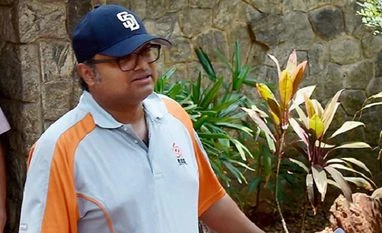The CBI summoned Karti Chidambaram, son of former Union Finance Minister P Chidambaram, on Thursday as part of its investigation into the Foreign Investment Promotion Board (FIPB) clearance given to the Aircel-Maxis deal in 2006.
The junior Chidambaram was asked to appear before the investigators at its headquarters in CGO complex in south Delhi's Lodi Road area, said sources in Central Bureau of Investigation (CBI).
The CBI's move comes in the wake of Supreme Court's order in April directing the agency to come with a detailed investigation report by the next hearing.
He would be questioned by the agency over the alleged money laundering through his firms in the Aircel-Maxis tie-up in 2008, the sources said.
The summoning comes days after Karti Chidambaram was instructed by the Supreme Court to appear before the CBI in relation to the INX Media Case, where he is accused of receiving irregular FIPB clearance for investment upto Rs 305 crore. In the course of hearing against him, the CBI on Tuesday claimed they have traced 25 companies linked to him abroad.
According to the CBI chargesheet submitted in a special court, Mauritius-based Global Communication Services Holdings Ltd., a subsidiary of Maxis, had sought approval for an investment of $800 million in Aircel.
More From This Section
Though it was the Cabinet Committee on Economic Affairs (CCEA), headed by then Prime Minister Manmohan Singh, which was competent to grant the approval, however, it was cleared by the then Finance Minister P. Chidambaram.
Bharatiya Janata Party Leader Subramanian Swamy has alleged that Chidambram then had tweaked FIPB norms for clearing Aircel-Maxis deal in 2006.
Seeking a probe into the role of Chidambaram in alleged violation of norms by the FIPB in approving the deal, Swamy has referred to the CAG's 2015 report which pointed to two alleged illegalities.
According to Swamy, the CAG cited the illegality of FIPB approving Maxis' acquisition of 93.3 per cent stake in Aircel Tele Ventures Ltd through its wholly-owned subsidiary, the GCSHL, well in excess of the then ceiling of 74 per cent investment by a foreign entity.
The second illegality, Swamy has said, was that since the foreign investment in Aircel was more than Rs 600 crore, it should have gone to the Cabinet Committee for Economic Affairs for approval but it was instead cleared by the FIPB.
)